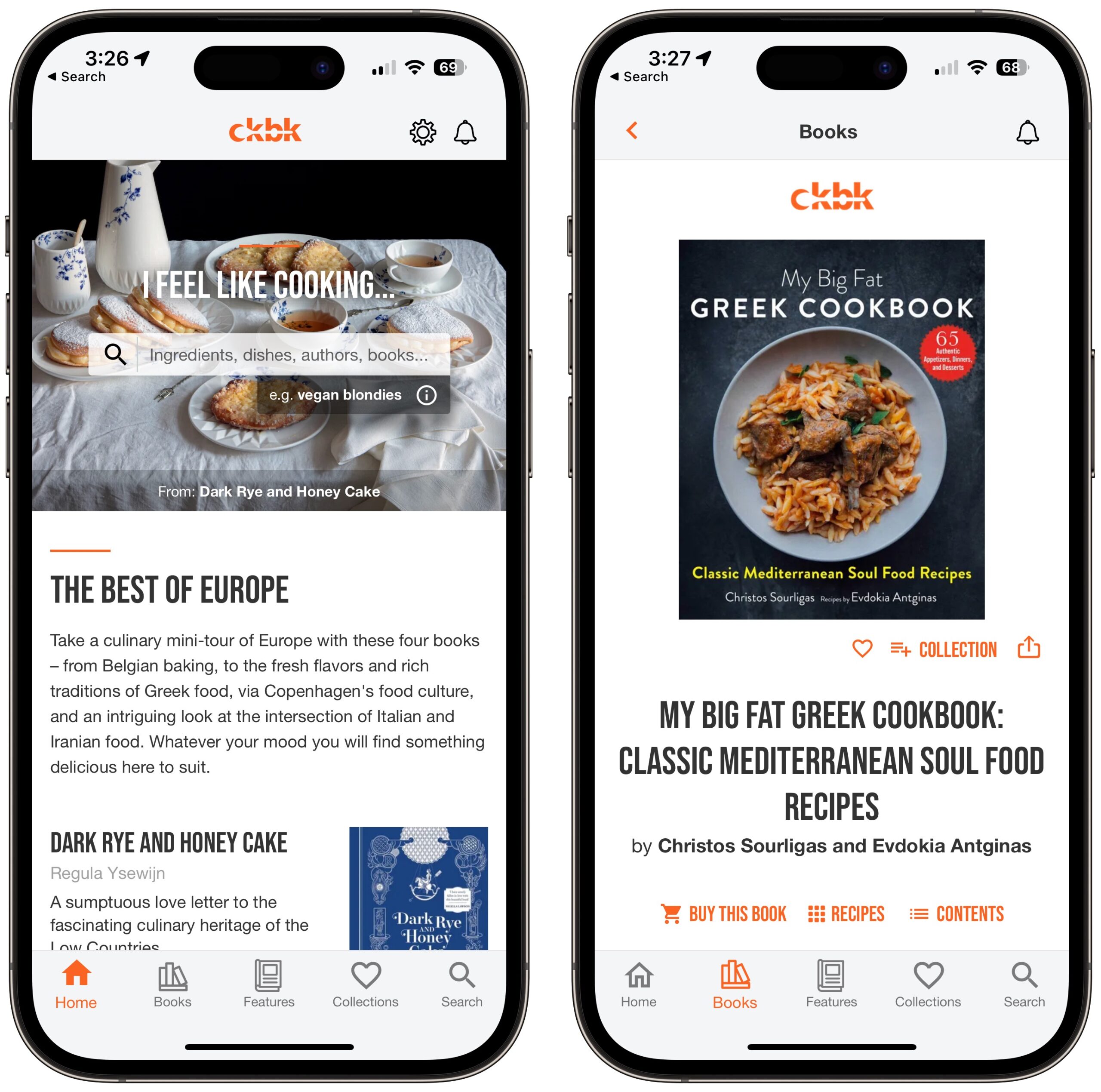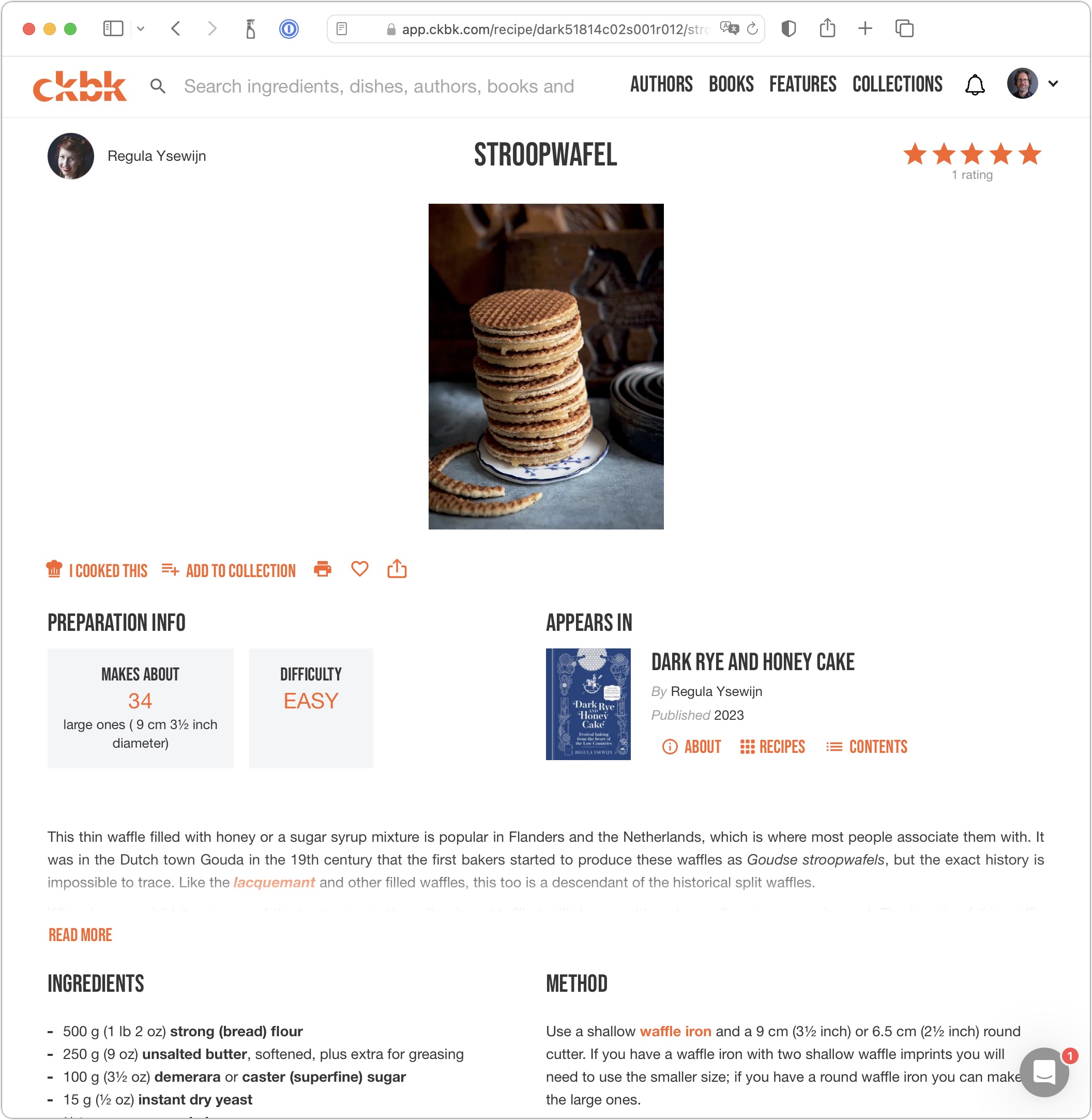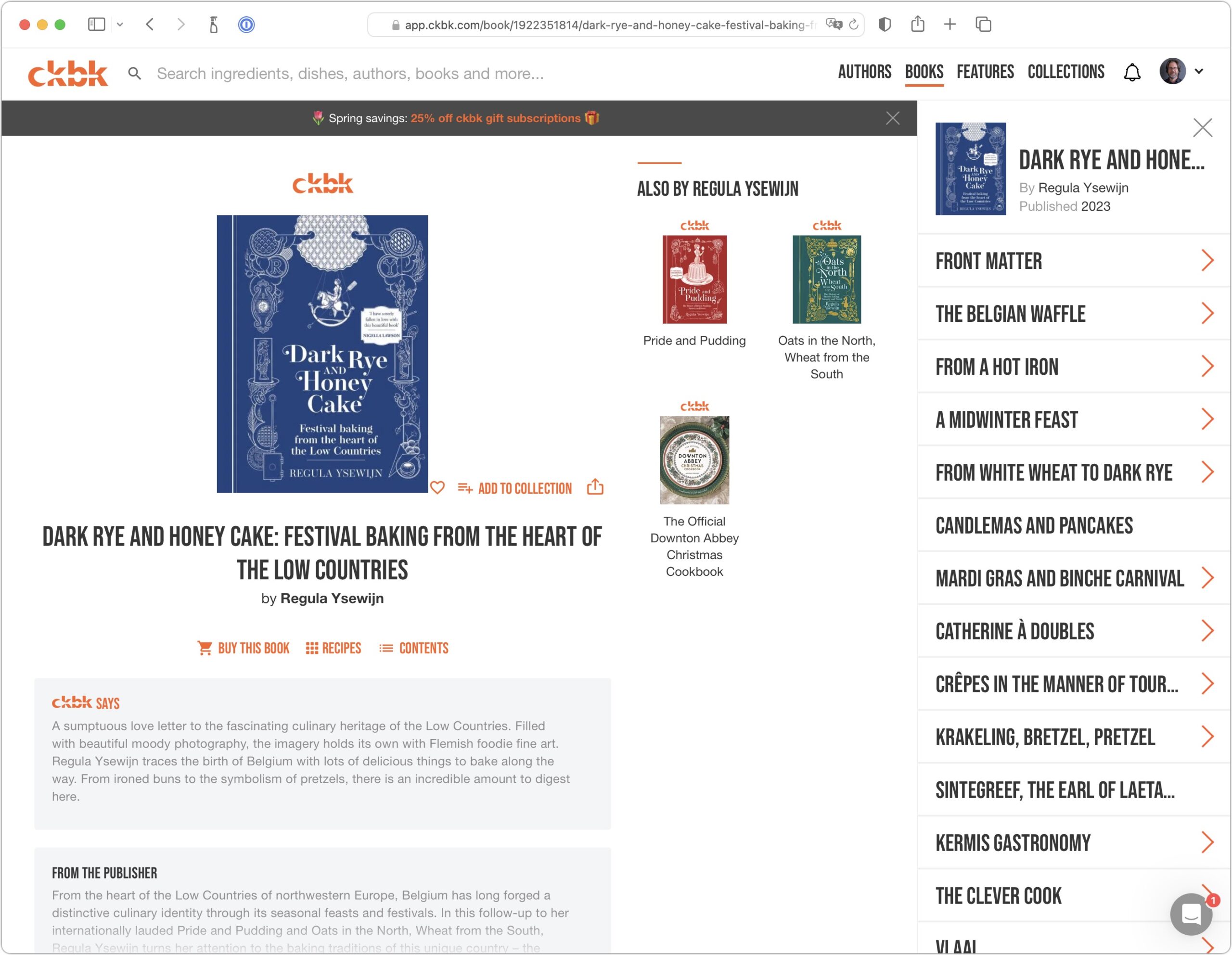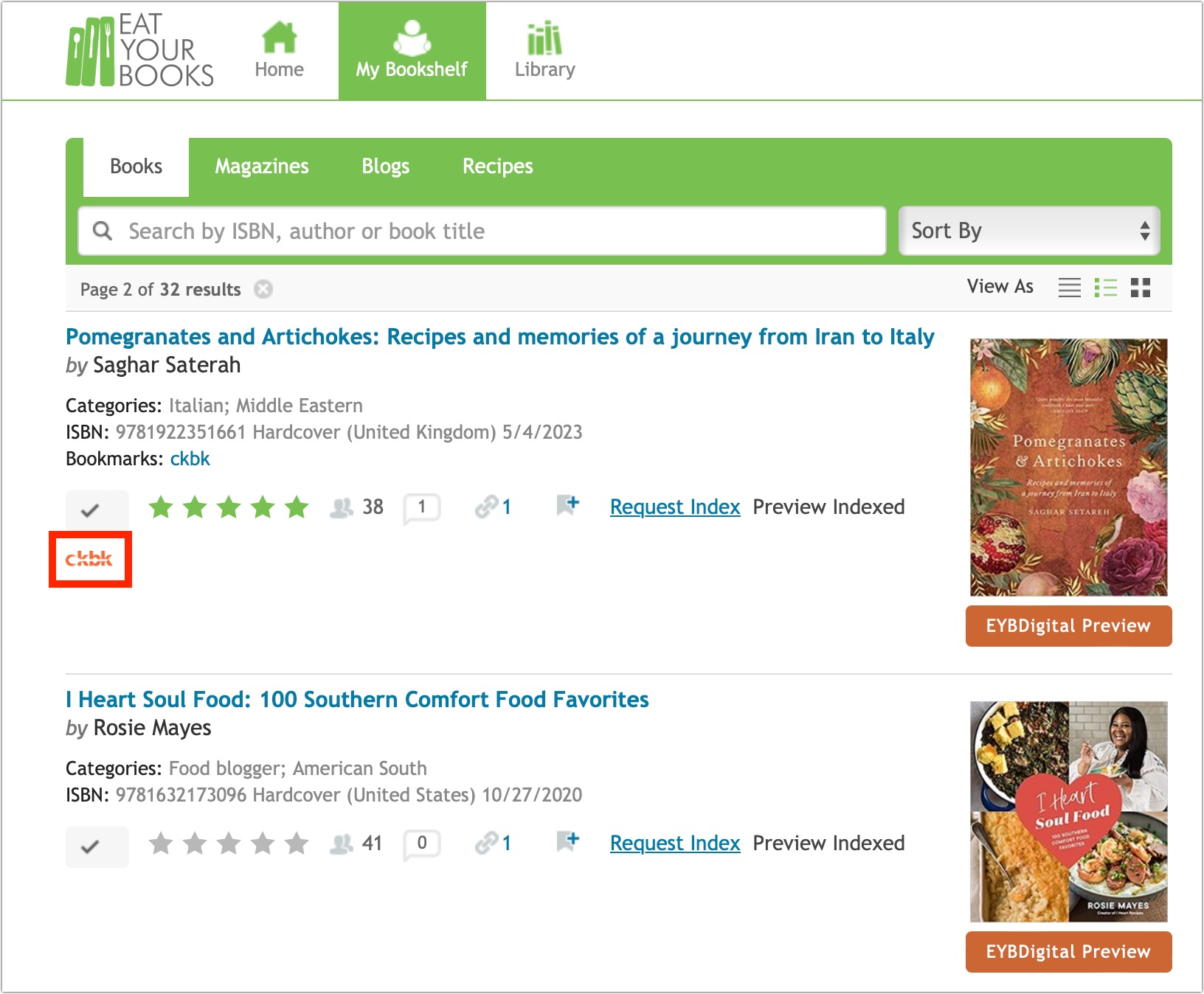MacTalk
March 2023
Filling Out Your Cookbook Shelves with ckbk
I had been neglecting my cookbooks. Instead of savoring the richness of recipes bound together with beautiful photography and stories of how food affects the people preparing and presenting it, I turned to quick Web searches for recipes of random provenance. Convenience had become my priority, and I felt guilty about it.
Then I discovered Eat Your Books, a website that provides a searchable database of printed cookbooks. I wrote about the service and how it assuaged my cookbook guilt in “Use the Web to Cook Your Books” (17 March 2022). Instead of haphazardly paging through my books, I could search for a recipe or ingredient and get a list of matches in my own collection. The key is that those results include only ingredients and page numbers, not the full recipes. That encourages me to open and use my cookbooks (and also bypasses copyright concerns on the part of Eat Your Books).
Now, I get my convenience in rapidly searching for recipes in Eat Your Books and then grabbing the relevant cookbook from the shelf containing my modest library. But that might be harder for people with large libraries. A page number is less useful when it’s challenging to find the book it belongs to. (How large? Jenny Hartin, Director of Publicity for Eat Your Books, had to cut through a door after a cookbook tower toppled and blocked it). With a library of that size, it would be helpful to get the recipe directly.
Another Way to ck Your bks
This is where ckbk comes in. After my Eat Your Books article appeared, ckbk founder (and longtime TidBITS reader) Matthew Cockerill reached out to introduce TidBITS to it. That, in turn, sent us down an app-tracking rabbit hole that Adam Engst detailed in “Helping ckbk Remove Ad Tracking” (15 March 2023).
ckbk is also focused on cookbooks, but unlike Eat Your Books, it licenses the rights to display the books’ full contents online or in the ckbk app. Instead of looking up recipes in a search engine and wading through random bloggers, database sites, sponsored results, and all the other cruft of modern Web queries, you know that ckbk results come from curated cookbooks. The service currently provides more than 120,000 recipes from over 700 cookbooks. (Attentive chefs may have noticed that number pales compared to the 160,000 titles in the Eat Your Books database, but cool your burners for now; more on that later.)
ckbk is able to license that content thanks to a subscription model that ensures that cookbook authors get paid for their work. A Premium Membership costs $4.99 a month or $39.99 billed annually ($3.33 a month). A 14-day trial is available.
A Great Browsing Experience
There’s a lot to like about the experience of using ckbk, but the first word that comes to mind is “refreshing.” The layout is clean, modern, and nicely organized. You can search using several avenues, from food categories to countries and eras. It also translates well between the Web and app versions. I could find a recipe using my computer, mark it as a favorite or add it to a collection, and then open it in the ckbk app on my iPad Pro, which gets propped up in my kitchen while I’m cooking from a digital recipe.
A consequence of using a search engine to find recipes is having to push through the seemingly endless introductory text that has become mandatory on food blogs. All you want is the recipe, but unless there’s a Jump to Recipe button, getting there requires scrolling through a litany of how this particular dish or ingredient changed the author’s life when weather forced them to spend a night in a cave in Paraguay with nothing but a few ingredients, a scented candle, and their grandmother’s silver tea set.
I’m not actually criticizing authors for that. Well, maybe a little. We’re plagued by such ramblings because search engine algorithms demand unique text, and the more keyword-heavy, the better. I don’t begrudge any food blogger for churning out these introductions because they need to spend most of their effort catering to shifting algorithms to get their content seen.
A cookbook, on the other hand, has already earned its audience. Recipe introductions tend to be short and focused on the dish. By extension, the recipes on ckbk include the same write-ups from the cookbooks, and by default, only a few lines are initially visible.
The licensing applies to the entire book, not just the recipes. Clicking the Contents link for a book reveals a sidebar containing chapter introductions and everything else in the book. After all, some of the best cookbooks are as enjoyable to read in a comfy chair as in the kitchen.
My only quibble about the layout is that I wish I could increase the size of the text. Not just due to my aging eyes, but because the iPad is a couple of arm lengths from where I’m standing over the range, requiring me to step to it each time I need to consult the recipe.
Book Selection
Having access to an entire cookbook’s text partially makes up for the relatively small number of titles available. I want to emphasize “relatively” because this experience will vary depending on your library and expectations.
Coming at this from the perspective of matching my library online, I was surprised to find that only a few of the books I own are in ckbk’s database. Perhaps this is because I have a small collection, but most searches came up empty. For example, Les Halles Cookbook by Anthony Bourdain is there; Thomas Keller’s Ad Hoc at Home is in the database, but its contents are not yet available. Dorie Greenspan’s popular books don’t appear at all. I also asked my friend and TidBITS contributor Agen Schmitz for some recent favorites, such as One-Pot Vegan by Sabrina Fauda-Rôle, which also did not appear.
However, ckbk and Eat My Books exist in part to expand awareness of cookbooks, food styles, and authors. Among those 700-plus titles is a wide variety of books spread through time periods and food interests. I’m intrigued by ckbk’s Professional Bookshelf, which appeals to those much more serious about the craft and art of cooking. Honestly, because the cookbook market is dominated by titles appealing to everyday home cooks, I hadn’t previously even thought of this as a category.
Some books in ckbk are “à la carte” titles, which cost extra to add to your library. For instance, the Les Halles Cookbook is a one-time charge of $28. If you were thinking of purchasing a cookbook anyway, the charge could be worth having it in your ckbk library for roughly the price of the ebook version.
Or, of course, you can order print versions of cookbooks via Amazon affiliate links. Although I’ve mentioned the benefit of having all of the books’ contents available, you don’t get the same visual experience viewing the photos online (although you can view them larger). Because sometimes you do want to curl up with a printed cookbook.
Eat Your Books and ckbk Collaboration
To steal from an old advertising campaign, sometimes two great tastes taste great together. On one side, ckbk provides full recipes online, but its library is comparatively small. On the other, Eat Your Books doesn’t offer actual recipes but boasts a massive database of titles and page numbers pointing to the recipes.
Now you can combine the flavors. Eat Your Books and ckbk have just announced a collaboration for their subscribers. If you’re already an Eat Your Books member, you can add titles from ckbk as bookmarks, which make them appear in your library. (Or, you can add the entire ckbk catalog to Eat Your Books by clicking the Add All to Bookshelf button.) From the My Bookshelf menu, choose Bookmarks and switch to the Books tab. Click the ckbk folder to view the ckbk titles in alphabetical order, and click the one you want. Then click the “+ Bookshelf” button to add it to your collection. An orange ckbk label appears for books and recipes that are in the ckbk database.
Subscriptions are required for both services. Eat Your Books users signing up to ckbk can get a 25% discount on a Premium Membership. ckbk users signing up for Eat Your Books get a free one-month extended trial by clicking “I have a voucher” at checkout and entering the code CKBK23.
And now, if you’ll excuse me, I’m craving a stroopwafel.
Contents
Website design by Blue Heron Web Designs







